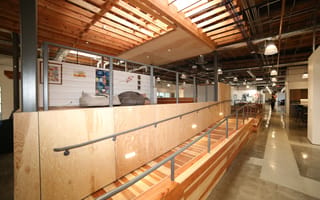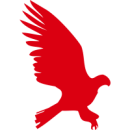Last year, Hawke Media CEO Erik Huberman spent weeks trying to get his city councilman on the phone, to no avail. He didn’t have a stake in local elections or a specific traffic control issue. Instead, Huberman was hoping to officially dedicate a week every year to the e-commerce industry across LA. It was an idea that Mayor Eric Garcetti himself had initially approved, but one that needed a city council majority vote to pass.
As an entrepreneur, Huberman is no stranger to hearing “no.” Instead of taking the initial silence he received as defeat, he garnered support for what is now called “eCommerce Week LA” by seeking out another councilmember.
No one expected that a full year later, the first annual event would be virtual. But the setup has come with benefits of its own, according to Angel Custodio, head of experiential and event marketing at the digital marketing consultancy. For example, extra room in the budget allows the team to test a variety of pitch competitions and interactive panels in order to see what works best. In addition, Custodio expects a national and international reach they might not have gotten otherwise.
When it comes down to it, Huberman isn’t the only one at Hawke Media who understands how to make lemonade out of lemons.
“We’re not sticking to a mold because nothing like eCommerce Week LA has ever been done before,” Custodio said.
Below, she explains how the event initially came to be and what it looks like now.

Tell me a little bit about your background. What brought you to Hawke Media?
My background is and has been in events for the last seven or eight years. I ended up at Hawke and in e-commerce because I wanted to dive into the digital space.
Digital is the way of the future, so I was excited about the opportunity to figure out experiential marketing and identify events that would put us on the map nationally and internationally.
When I started, we were already on both the West and East Coasts. Before COVID-19 hit, I really wanted to give us a more international reach and tap into markets we weren’t yet present in. With virtual events, I’m still working toward that same goal.
At the end of the month, you’ll be hosting LA’s inaugural e-commerce week. How does the event in its final form compare to your team’s vision for it last October?
From the start, we envisioned eCommerce Week LA to be the New York Fashion Week of e-commerce. It was going to be a week-long series of different events taking place all over LA. We planned on having different activations, brunches, lunches and sessions highlighting brands in the LA ecosystem.
Since everything has changed since last October, we’ve completely transitioned to virtual while still trying to find elements to keep everything interactive and engaging. For example, during the FabFitFun competition, people can pitch Co-Founder and Editor-in-Chief Katie Rosen Kitchens products for one of the company’s famous subscription boxes and during the MeUndies “Creative Briefs” competition, attendees will compete for the best underwear design.
Because our budget is not as extreme as it would be for an actual activation, which is the full process of building awareness for a company, we really have the freedom to do whatever we want and see what works. We’re not directly sticking to a mold because nothing like eCommerce Week LA has ever been done before.
We aren’t trying to scale it down to one type of person.’’
Has the quarantine conference you hosted in early April informed certain decisions about how eCommerce Week LA will be run?
I still want to keep everything at an executive level. I also want the panels and speakers to be relatable so that everyone feels like certain sessions are there for them.
That said, we aren’t trying to scale it down to one type of person. We want eCommerce Week LA to be a one-click user experience, where people feel like they can access a session at any time. We made it a full week so that it reaches various audiences, demographics and entrepreneurs. For the same reason, it’s also complimentary. We truly believe everyone deserves access to this education.
I think we did a solid job of catering to different types of people with Quarantine Conference. But for eCommerce Week LA, we are ramping it up. Our priority is highlighting the Los Angeles e-commerce ecosystem rather than COVID-19.
Quarantine Conference
How do you limit Zoom fatigue and encourage participation when planning an event of this scope?
Interactive engagements! We’ve had more lead time to create activations that brands have been willing to work with us on. We have a variety of engaging elements that we hope will get the crowd involved.
Competition also plays a role. We’re hosting a cooking class, a cocktail class, a design class, two pitch competitions and a bunch of giveaways.
We’re still using Slack as our chatroom instead of the Zoom chat because we feel that it’s a universal tool. Participants can simply add another workspace to their existing platform so that they can remain engaged while at work. Because the experiences will be virtual, people can pick and choose what events they want to attend –– or multitask.
Where do you see the professional event industry headed next year and beyond?
I think events will definitely be hybrid. Event producers and event marketers have always had to be forward-thinking in their roles. But now more than ever, we have to be extra creative about how we execute experiential-type activities while engaging our audience. Now that we’re doing all of these virtual events, we’re creating community all over the place. So if we go back to doing in-person events, a hybrid model will be key. We’ll have to utilize new software and technologies. Of course, streaming already existed. But how do you get people involved who physically can’t be there?
The reality is that even if events are back to normal this time next year, not every single person in the world is going to feel comfortable enough to go back to the way things were. It will be up to us as producers to create the bridge between live and virtual events so that everyone can still be involved.






